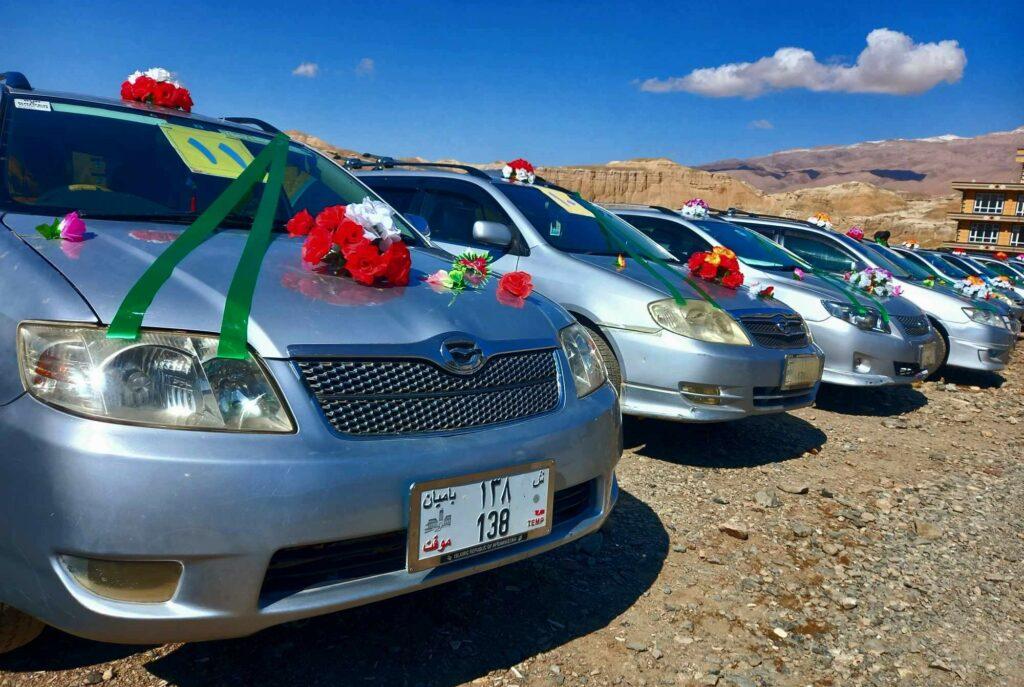BAMYAN CITY (Pajhwok): Some residents of central Bamyan province express concern over high costs of wedding ceremonies what they terms ‘unpleasant traditions’ in society.
They believe promoting the culture of mass wedding ceremonies could be a suitable alternative to reduce expenses on marriages.
According to them, unsavory customs in Bamyan remain prevalent, posing a significant barrier to timely marriages for young couples.
Karim Rasooli, an influential figure from Jigharkhel village in Bamyan central district, said that encouraging joint weddings could effectively reduce wedding costs.
He believes that many young people, due to severe poverty and unemployment, cannot afford exorbitant expenses required to marry and start families at appropriate times.
He added if collective weddings are promoted in society, it would lead to decreased unnecessary expenditures and the elimination of unpleasant traditions, thus facilitating young people’s marriages.
Ali Karimi, a resident of central Bamiyan, argues that burdensome customs have led to numerous social problems.
He said many young people were unable to marry in a timely manner because of these negative traditions and high wedding costs, which have pushed them towards social abnormalities.
He added that in the current circumstances, collective weddings could eliminate some of these negative traditions and create an easier pathway for young people to marry.
This comes at a time when some young individuals remain engaged for years, citing high costs as an obstacle to marriage.
Ghulam Hussain, a resident of “Zargran” village, citing, “More than two years have passed since my engagement, and due to economic issues and high expenses, I have been unable to marry.”
He pointed out that customs such as engagement ceremonies, sweets distribution, gift-giving, weddings, purchasing gold, clothing, and other expenses hinder many young people from marrying.
Meanwhile, local scholars and social activists consider high wedding expenses contrary to Islamic values and a source of social anomalies.
Ali Jummah Rizwani, a religious scholar in Bamyan, remarks that Islam only permits a modest feast and an acceptable dowry agreed upon by both parties.
He believes best marriage, both materially and spiritually, is the simplest one, and what is currently being spent in various ceremonies is against the teachings of the Holy Quran and Islamic principles.
Abdul Hamid Najafi, a social activist in Bamyan, asserts that as long as unpleasant traditions are promoted in society, social problems will continue to persist.
He indicates that these negative customs and extravagant wedding expenses contradict Islamic values and have negative consequences in society, including runaway situations, illegal migration, turning to moral corruption, drug addiction, and numerous other issues.
Local government officials in Bamyan also regard high wedding expenses as contrary to Islamic principles and say effective measures have been taken to eliminate these unpleasant traditions.
Maulvi Mohammad Hanif Hanafi, head of the Department of Guidance, Hajj, and Endowments in Bamyan, said that the dowry and other wedding expenses go against Islamic directives and have no religious basis.
He added that the Department of Hajj and Endowments has approximately 100 official Imams in the province who continuously preach against unpleasant traditions in their sermons in mosques.
He also emphasized that his department supports the organization of collective weddings by religious authorities and charitable organizations, and they will implement any action that helps reduce negative customs and traditions in society.
sa/ma








GET IN TOUCH
NEWSLETTER
SUGGEST A STORY
PAJHWOK MOBILE APP